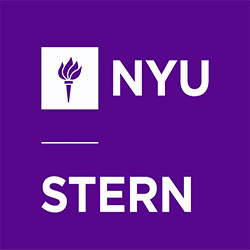Stern offers a wide range of entrepreneurship opportunities. Whether you are looking to start your own company or join an existing startup as an early employee or cofounder, Stern has resources to help you achieve your goals. This post will explore some of the amazing centers, programs, and classes that Stern entrepreneurs can take advantage of during their time in business school.
Leslie E Lab
The Leslie Entrepreneurs Lab is a physical building in the heart of the Washington Square campus where aspiring NYU entrepreneurs from across all of NYU’s schools and colleges can meet to connect, collaborate, and tap into a vast array of resources to help develop their ideas and inventions into startup companies. Anyone currently at NYU can take advantage of the resources offered by the Leslie eLab, so it serves as a great place to meet current NYU students, faculty, researchers, and staff. In response to COVID-19, the eLab held virtual programming, workshops, and social events to help the NYU entrepreneurship community thrive during challenging times.
Berkley Center for Entrepreneurship
The Berkley Center for Entrepreneurship is a venture design studio within NYU Stern School of Business. The Berkley Center for Entrepreneurship exists to help foster entrepreneurship at Stern and provide support as entrepreneurs navigate the many challenges their new ventures encounter. The Center provides startup accelerator programs, mentoring, workshops and technical assistance, all designed to provide NYU students, alumni, faculty and staff with the skills and resources needed to discover and execute bold new ideas. The team members at the Berkley Center provide general advising services in addition to helping founders connect with subject matter experts in various functional areas such as branding, customer strategy, legal, prototyping, etc. The Berkley Center also hosts the Entrepreneurship Challenge and Stern Venture Fellows program.
Entrepreneurship and Startup Association (ESA)
ESA is a student-run organization with the mission to empower its members through unparalleled access to NYC’s vibrant entrepreneurial community. ESA provides education and information on the entrepreneurial resources available to Stern MBAs. By empowering and educating its members, ESA aims to position Stern as the broader NYU community’s hub for entrepreneurial activity.
Classes
Foundations of Entrepreneurship: This class is designed to increase the chances of entrepreneurial success by helping aspiring founders or startup employees identify and thus avoid a range of dilemmas all startups face. To do so, this class provides a broad introduction and overview of entrepreneurship based on a range of teaching methods including: academic research, cases, empirical data, videos, and guest speakers.
Managing the Growing Company: This course exposes students to the unique challenges of managing the growth of small businesses. It concentrates on building the company issues rather than start-up issues, although some cases and lectures explore start-ups as well. Included are studies of family businesses that have acute growth issues because of succession and family dynamics. It is designed for students interested in understanding the opportunities and problems involved in the management or operation of their own business, and it is also aimed at students considering employment in a small or midsized firm.
Endless Frontier Labs: Students will learn about the process of successfully taking new ventures to markets, including aspects related to development, management, and financing of ventures. The course will be centered on student observations of the interactions of startup founders & their potential investors. After familiarizing themselves with the startups’ ideas, students will apply basic analytical tools, drawn from management, econ, and finance to evaluate the size of markets, attractiveness of industries, financing options of early-stage ventures, sustainable competitive advantage of proposed strategies, and the risks and potential of ideas. Along with the experiential component, the course will introduce students to a framework for developing an entrepreneurial strategy.
If you are interested in a dynamic startup ecosystem with the resources, faculty, and alumni to help guide your experience, NYU Stern is a great place to begin or continue your entrepreneurship journey.
 A huge part of the Stern experience is getting to know your classmates, Stern alumni, and faculty, and building long-lasting relationships.
A huge part of the Stern experience is getting to know your classmates, Stern alumni, and faculty, and building long-lasting relationships.

